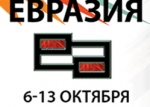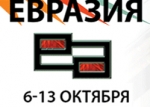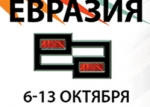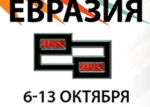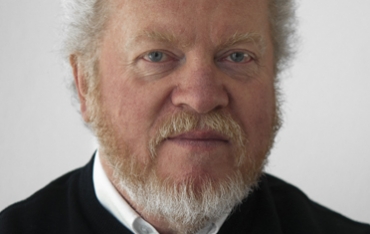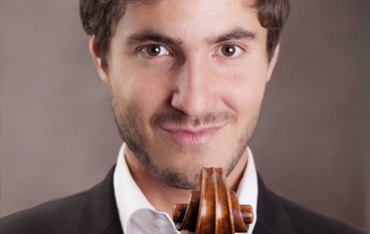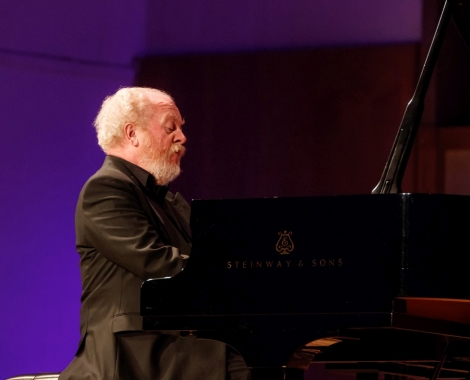Eurasia International Music Festival
Dialogue of Civilizations
Ekaterinburg will play host to the Eurasia International Music Festival, which returns to the city for a fourth time and will run from October 6 through October 13, 2017. The initiator and organizer of the upcoming high-profile event is the Sverdlovsk Philharmonic. The Grand Hall of the Philharmonic and other concert venues of the city will welcome musicians from France, Germany, Italy, Poland, China, and Syria. The opening and closing ceremonies will be held with participation of the Ural Philharmonic Orchestra (UPO) under the baton of Chief Conductor and Eurasia’s Artistic Director Dmitry Liss. The festival is conceived as an intercontinental project built on the dialogue between Eastern and Western cultures and civilizations.
“The idea of the festival was inspired by our city’s unique location on the border between Europe and Asia,” Dmitry Liss says. “Here, in Russia we cannot escape the dialogue between two civilizations. The Tatar Yoke brought centuries-long cross-cultural influences and interactions between the two civilizations, two philosophies, two mentalities. How much does our mentality owe to the Western civilization and how big was the Eastern contribution? I strongly believe that Russia is a European country; however, centuries of the coexistence with eastern civilizations could not but leave their imprint on national archetypes. Even the stereotype-based saying “The Russians are slow starters but they drive fast” correlates with the Eastern meditative traditions. Besides, intonational contacts in music are obvious – Russia has always been participating in the dialogue between East and West: It was captured in compositions by Mikhail Glinka, Alexander Borodin, Mily Balakirev, Nikolai Rimsky-Korsakov and many other composers. The so-called Russian East is an essential part of our culture.
The way or the road is the word and the concept of crucial importance for both civilizations. The theme throughout the festival is that of way or journey. In the European culture, the way or journey is a metaphor of life: Schubert’s Winter Journey, Gustav Mahler’s Songs of a Wayfarer, Viktor Vasnetsov’s Knight at the Crossroads. In the eastern philosophy, the word “way” (dao, do) is not only polysemous, but also highly important: It is the basis of existence, a way of life, learning and mastering of arts (bushido, judo, karate-do). The guests of our festival are musicians who chose non-traditional ways: For example, Gabriel Prokofiev had been known as a DJ before he became a composer creating scores for a symphony orchestra; Gerhard Oppitz, a famous German pianist, moves along two roads, pursuing two career choices: a soloist and a pilot. I think it is great that all these ways and roads are going to meet at the festival in our city.”
The idea of cultural convergence the maestro is talking about was implemented during the first festival at several levels: selecting performers, preparing concert programs, launching festival projects with participation of musicians from countries of Asia and the Arab World, commissioning new compositions. The First Eurasia International Music Festival was held in 2011 and was dedicated to the 75th anniversary of the Sverdlovsk Philharmonic. The lineup of its participants looked quite impressive: orchestras from China and Germany, the Hortus Musicus Ensemble, violist Yuri Bashmet, pianists Vassily Lobanov and Freddy Kempf, violinists Sayaka Shoji and Alena Baeva. The China National Symphony Orchestra opened the festival; the conductor was Michel Plasson, the renowned French conductor. The orchestra played music of French, German, Russian, and Chinese composers.
The hero of the festival was the Ural Philharmonic Orchestra, which gave seven out of thirteen concerts; 1001 Nights in the Harem, the violin concerto of Turkish composer Fazıl Say, made its debut in Russia. The First Festival commissioned Alexander Tchaikovsky to write music, and he created Concerto for cello and orchestra – Night in the Harem – pure coincidence, though rather symbolic. Another world premiere – Chorale & Lamento, an orchestral piece by French composer Rene Koering, echoed the tragedy of the execution of the Russian royal family. Another highlight was Nikolai Rimsky-Korsakov’s Scheherazade – the composition of particular importance for Dmitry Liss, echoing with his thoughts about the dialogue between civilizations:
“Russia gave impetus to the French music, having influenced Claude Debussy, Maurice Ravel, composers of Les Six (The Six),” the maestro says. “It was Diaghilev’s Russian Seasons that sparked European musicians’ interest in orientalism, in Oriental culture. Rimsky-Korsakov’s Scheherazade was followed by Ravel’s Scheherazade; then Olivier Messiaen and, later on, minimalists made their contribution, trying to combine elements of Eastern cultures and European music. In the meantime, composers from Asian countries, among them Toru Takemitsu, Tan Dun and many others, started dressing their music in European clothes. The dialogue is full of an inexhaustible vigor. The festival justifies its name: It was born and takes place here, on the border between Europe and Asia.”
Toward Unknown Seas and Lands
Even today, the Ural Philharmonic Orchestra is the core orchestra of Eurasia, though the pool of participants and the genre palette of the forum have become a lot wider. Light from the East (Ex Oriente Lux) was the motto of the Second Festival (2013). New pieces of music were commissioned to three composers representing Western, Eastern and Russian musical cultures. The festival opened with three world premieres: Leonid Desyatnikov debuted with the Journey of the Fox to the North-West for soprano and orchestra; South-Korean composer Eun-Hwa Cho wrote the Concerto for janggu (the national drum) and orchestra; Ekaterinburg composer Olga Viktorova prepared a revised version of her orchestral piece Azure Dragon of the East.
The guests of the Second Festival were the Amsterdam Baroque Soloists, the Leipzig Radio Symphony Orchestra, the Mannheim Philharmonic Orchestra, conductors Ton Koopman, Kristjan Jarvi and Benjamin Ellin, pianist Fazıl Say and many others. The audience was captivated by the Hong Kong Orchestra using traditional national instruments to play old folk melodies; the Great Silk Road, a two-day event, introduced the audience to flamenco Cante Jondo (Spain), Azerbaijani mugham singers and musicians, Orthodox male Byzantion Choir (Romania) and the Indian Classical Music Ensemble. Two years later, the success of the second festival was nailed down by the third festival dedicated to the musical culture of Mediterranea. Its centerpiece was the ethnic project – From the Levant to the Maghrib – bringing together music from different coasts of the Mediterranean Sea: The Western world was represented by Christina Pluhar’s L’Arpeggiata ensemble playing folk songs of Spain, Portugal, Italy, and Greece; the Eastern World was represented by Sufi ensemble Al-Tariqa Al-Gazoulia (Egypt), directed by Sheikh Salem Al-Gazouly.
Among the participants of the third festival there were the RAI National Symphony Orchestra (Italy), pianists Anton Batagov and Lucas Debargue, violist Yuri Bashmet, violinist Josef Spacek and the legendary Arditti Quartet. The latter took part in the world premiere of Fluss (The River) for string quartet and orchestra (composer: Toshio Hosokawa, Japan). The audience was introduced to another two world premieres: I See Your Dream, You See My Dream for piano and orchestra (composer: Anton Batagov) and The River of David, mono-opera (composer: Olga Viktorova). The first festival immediately demonstrated the audience’s interest in meet-the-artist events and autograph signing sessions followed by the traditional Ekaterinburg treat – a bird-cherry pie. Guests of the fourth festival will not be disappointed: They will have it all; however, the main events will take place at the Grand Hall of the Philharmonic, at the club of the Press House and at the Yeltsin Center.
Asia and an Experiment; Europe and the Tradition
By tradition, the 4th Festival will open with a concert of the Ural Philharmonic Orchestra directed by Dmitry Liss. Two concerts of the orchestra, October 6 and October 13, overarch the festival program. The program is implicitly divided into two parts: The first part is represented by Asia and an experiment; the second part introduces Europe and the tradition. The Way, the theme of the 4th Festival, symbolizes the search and the movement. Sergei Prokofiev’s Scythian Suite (Ala and Lolly) will open the festival alongside his grandson’s Concerto for Turntables and Orchestra and Toru Takemitsu’s Quotations of Dream for two pianos and orchestra, an elegant impressionistic concerto. In his composition, Toru Takemitsu uses musical motifs from Claude Debussy’s symphonic poem La Mer (The Sea), which harmoniously complements the opening program.
One day later, Gabriel Prokofiev will introduce the audience to a special project of the festival – Nonclassical Night at the club of the Press House. The name has been used by Gabriel since 2004 for his concerts at clubs of London, Paris, Berlin, New York City and other cities and towns. Classical music of composers of the 20th century is interspersed with a mixture of modern composition and electronic dance music played by DJs. The unique concert will be given with participation of soloists of the Ural Philharmonic Orchestra and the most famous London DJ Switch – a three-time DMC World Champion: It turned out that not only accordionists, but also DJs have world championships instead of international competitions.
The next highlight of the program is The Dialogue, a Chinese and European musical project where Lingling Yu (pipa, China) will play together with performers from France, Poland and Russia. The pipa, guitar and orchestral strings will be used to play different music ranging from Chinese folk melodies to compositions of Tchaikovsky and Tan Dun, including a European, three Russian and three world premieres. The most exotic event of the festival will take place on October 8: The Sheikh Hamed Dawood Group from Syria will introduce the audience to the music and dances of the Sufis – the tradition of the Middle-Eastern culture going back into the 7th century AD.
The second part of the festival showcases the best achievements of European culture, primarily Austrian-German and Italian, though not neglecting Asia. The Munich Chamber Orchestra will play compositions of Mendelssohn and the Romanian Concerto of Gyorgy Ligeti, a representative of the European avant-garde, as well as Chamber Symphony of Isang Yun, a Korean-born German composer. Pianist Pierre-Laurent Aimard, who included compositions of Johann Sebastian Bach in his repertoire several years ago, will present his interpretation of Bach’s Goldberg Variations and 12 etudes of Claude Debussy. His colleague Gerhard Oppitz will play compositions of Schumann and Schubert as well as Sonata No.2 of Japanese composer Saburo Moroi; the composer did a lot in his attempt to merge two centuries-long traditions of Japan and Germany.
Music of Handel will be presented by conductor Fabio Ciofini, singer Roberta Invernizzi and ensemble Accademia Hermans. The level of these performers, still unknown to many music lovers in Russia, is well demonstrated by the fact that a week later they are going to repeat their performance at the Wigmore Hall (London), one of the world’s best chamber halls. On October 13, the festival will close with the world premiere UR of contemporary Italian composer Ivan Fedele; Gerhard Oppitz will play Brahms’ Piano Concerto No. 2. The final highlight of the program is Vaughan Williams’ Toward the Unknown Region for chorus and orchestra; the name of the composition not only resonates with the name of one of the movements of Fedele’s new composition – Toward Unknown Heights, but also can be associated with the motto of the festival.
As usual, Eurasia goes beyond the concert program and venues; the audience can meet many performers in an informal environment, ask question, get autographs, and get a close-up look at exotic instruments of the musicians of the Sheikh Hamed Dawood Group. Gabriel Prokofiev and Ivan Fedele will meet with young musicians and students of music schools of Ekaterinburg; the Yeltsin Center will host a movie night: The program includes the film about life and work of Gerhard Oppitz as well as recorded concerts of the previous Eurasia festivals (the recordings were prepared by the Virtual Concert Hall of the Sverdlovsk Philharmonic).
Over six years of its existence, the Eurasia International Music Festival has come a long way: a wide audience as well as a Russian and international community of professionals was introduced to the vibrant palette of the musical landscape of Europe and Asia. It was the way of discoveries: premieres of new compositions, performances of outstanding musicians, new names and unknown musical instruments, a journey into musical heritage of Europe, Asia, Middle and Far East. The journey goes on through time and space, and it is proved by the program of the 4th Festival, which remains true to itself, performers and audiences.
Ilya Ovchinnikov


